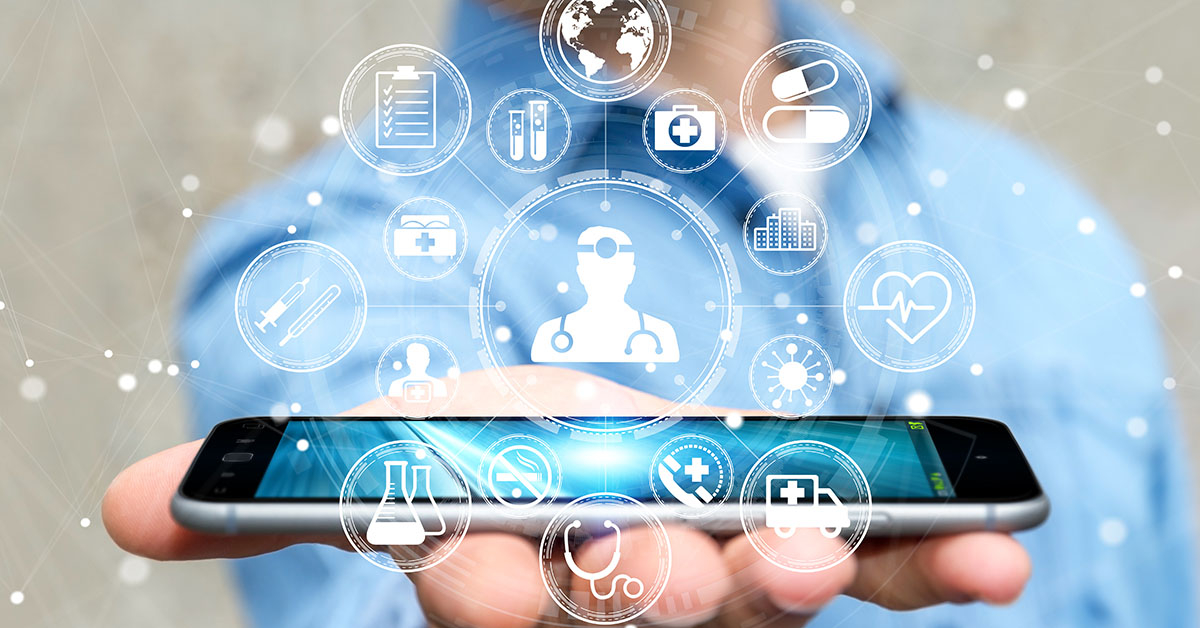
In today’s fast-paced world, technology has revolutionized the way we access essential services, including healthcare. With the increasing reliance on smartphones for everyday tasks, it’s no surprise that accessing healthcare benefits through your mobile device has become a convenient and efficient option. In this post, we will explore how you can leverage the power of your smartphone to easily access and maximize your healthcare benefits. From telemedicine appointments to prescription refills, discover how technology can streamline your healthcare experience and ensure you make the most of your coverage.
The Evolution of Telemedicine
Telemedicine has transformed the way healthcare is delivered, allowing patients to access medical services remotely through technology. Initially used for consultations in rural areas, telemedicine has now expanded to include various specialties and services, providing convenient and efficient healthcare options for individuals worldwide.
Subsections:
Early Beginnings of Telemedicine
The concept of telemedicine dates back to the early 20th century, when radio was used to provide medical advice to ships at sea. Over the years, advancements in technology have enabled telemedicine to evolve into a comprehensive platform for virtual consultations, remote monitoring, and even tele-surgery.
Integration of Telemedicine in Mainstream Healthcare
With the rise of telehealth platforms and mobile apps, telemedicine has become increasingly integrated into mainstream healthcare systems. Patients can now receive quality medical care from the comfort of their homes, reducing the need for in-person visits and improving overall access to healthcare services.
Benefits of Using Mobile Apps for Healthcare
In today’s fast-paced world, the use of mobile apps in healthcare has revolutionized the way we access and manage our health. These apps offer a wide range of benefits, making healthcare more accessible, convenient, and personalized for users. One of the key advantages of using mobile apps is the ability to access healthcare services anytime, anywhere, providing users with immediate medical attention and information at their fingertips. This convenience is especially beneficial for individuals with busy schedules or those living in remote areas with limited access to traditional healthcare facilities.
Enhancing Patient Engagement and Empowerment
Mobile apps also play a crucial role in enhancing patient engagement and empowerment. By allowing users to track their health data, set reminders for medications or appointments, and access educational resources, these apps empower individuals to take control of their health and well-being. Additionally, features such as teleconsultations and remote monitoring enable patients to stay connected with healthcare providers, fostering a stronger patient-doctor relationship and promoting proactive healthcare management.
Smartphone Applications for Monitoring Health
Telemedicine has revolutionized the way we approach healthcare, allowing individuals to access medical services remotely. One aspect that has gained significant attention is the development of smartphone applications for monitoring health. These apps offer users the ability to track various health metrics, such as heart rate, sleep patterns, physical activity, and even blood pressure, empowering individuals to take control of their well-being.
Benefits of Health Monitoring Apps
Health monitoring apps provide users with valuable insights into their overall health and can help identify potential issues early on. By regularly tracking key metrics, individuals can better understand their bodies, set health goals, and make informed decisions about their lifestyle. Furthermore, these apps can facilitate communication with healthcare providers by enabling users to share real-time data, leading to more personalized and effective treatment plans.
Telehealth Services and Insurance Coverage
Telehealth services have revolutionized the way healthcare is delivered, allowing patients to access medical care remotely through video calls, phone consultations, and messaging platforms. This convenient and efficient method of healthcare delivery has been particularly beneficial for individuals with limited mobility, those living in rural areas, and patients seeking quick medical advice. However, the availability and coverage of telehealth services by insurance providers play a crucial role in determining the accessibility of these services to a wider population.
Insurance Coverage for Telehealth Services
Insurance coverage for telehealth services varies widely among different providers and policies. While some insurance companies fully cover telehealth consultations, others may require copayments or impose restrictions on the types of services that are eligible for coverage. It is essential for patients to familiarize themselves with their insurance plans to understand the extent of coverage for telehealth services and avoid unexpected out-of-pocket expenses. As telehealth continues to gain popularity, advocating for comprehensive insurance coverage for these services will be vital in ensuring equitable access to quality healthcare for all individuals.
Security Measures for Healthcare Apps
Ensuring the security and privacy of patient information is paramount in the realm of healthcare apps. With the increasing reliance on mobile technology for medical purposes, developers must implement robust security measures to protect sensitive data from cyber threats. Encryption, multi-factor authentication, and regular security audits are essential components to safeguard patient information.
Importance of Data Encryption
Data encryption plays a crucial role in safeguarding patient data transmitted through healthcare apps. By converting sensitive information into a code that can only be accessed by authorized parties with the decryption key, encryption prevents unauthorized access and data breaches. Implementing strong encryption protocols ensures that patient confidentiality is maintained, instilling trust in the healthcare app’s security.
Future Trends in Mobile Healthcare Technology
As technology continues to advance, the future of mobile healthcare technology looks promising. One of the key trends that we can expect to see is the integration of artificial intelligence (AI) and machine learning algorithms into healthcare apps. These technologies will allow for more personalized and efficient healthcare services, such as predictive analytics for early disease detection and personalized treatment plans based on individual health data.
Another exciting trend on the horizon is the widespread adoption of virtual and augmented reality in healthcare apps. These technologies have the potential to revolutionize medical training, patient education, and even remote surgical procedures. By immersing users in realistic healthcare scenarios, virtual and augmented reality can enhance learning experiences and improve patient outcomes.